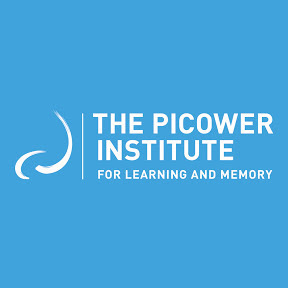
Aging Brain Seminar with Ramon Sun, PhD, "Hyper-Glycosylation as a Central Metabolic Driver of Alzheimer’s Disease"
Description
Aging Brain Seminar with Ramon Sun, PhD, University of Florida
- Date: Tuesday, August 5
- Time: 4:00pm
- Location: Picower Seminar Room (46-3310)
Talk Title: Hyper-Glycosylation as a Central Metabolic Driver of Alzheimer’s Disease
Abstract: Alzheimer's disease (AD) is a neurodegenerative disorder characterized by devastating degenerative decline. Metabolic disruptions are widely observed, yet their involvement in the molecular etiology of AD remains underexplored. Utilizing spatial metabolomics, lipidomics, and glycomics in both mouse models and human post-mortem samples, we identified a hyper-glycosylation phenotype as a hallmark of AD. To investigate the underlying mechanisms and whether the observed effect was a driver of the observed decline, we developed an advanced spatial isotopic tracing pulse-chase method to study the dynamics of N-linked glycans. Our analysis revealed enhanced glycan biosynthesis in AD mouse models. Based on these findings, we performed genetic and dietary interventions to modulate glycan biosynthesis. Genetic knockdown of glycan biosynthetic enzymes ameliorated the hyper-glycosylation and improved cognitive and behavioral outcomes in AD mice. In contrast, oral glucosamine supplementation drove hyper-glycosylation and exacerbated cognitive and behavioral deficits. To assess the clinical relevance of these findings, we conducted a retrospective analysis of a large population of patients with mild cognitive impairment (MCI), AD, and Alzheimer's Disease Related Dementias (ADRD) stratified by glucosamine use, leveraging electronic health records. Consistently, glucosamine supplementation was associated with increased mortality in AD and ADRD patient cohorts, and significantly elevated progression from MCI to AD compared to age-matched controls. Collectively, our findings establish hyper-glycosylation as a pathological driver of AD and highlight glycan metabolism as an actional target in the fight against AD.
Bio: Dr. Ramon Sun is a leading researcher in spatial biology, pioneering the development of next-generation spatial metabolomics to decode the biochemical basis of physiology and disease. His work integrates advanced mass spectrometry, imaging technologies, and artificial intelligence to map metabolic processes in space and time. Dr. Sun’s lab has developed a suite of AI-powered analytical platforms that transform spatial metabolomics data into mechanistic hypotheses, which are then systematically tested using human biospecimens and transgenic mouse models. These efforts have led to major discoveries in the molecular underpinnings of aging, cancer, and neurological disorders.
----------
About The Aging Brain Initiative
The Aging Brain Initiative is a interdisciplinary research effort that pulls together faculty expertise, knowledge, and technical resources from across MIT to solve the mysteries of the aging brain. It spans neuroscience, fundamental biology and genetics, investigative medicine, engineering and computer science, economics, chemistry, urban planning, and artificial intelligence to enable a comprehensive systems approach. What's the ultimate mission? To deliver the basic research that makes possible new tools to address the challenges of brain aging and create a better future for millions. Read more here: https://picower.mit.edu/research/aging-brain-initiative

